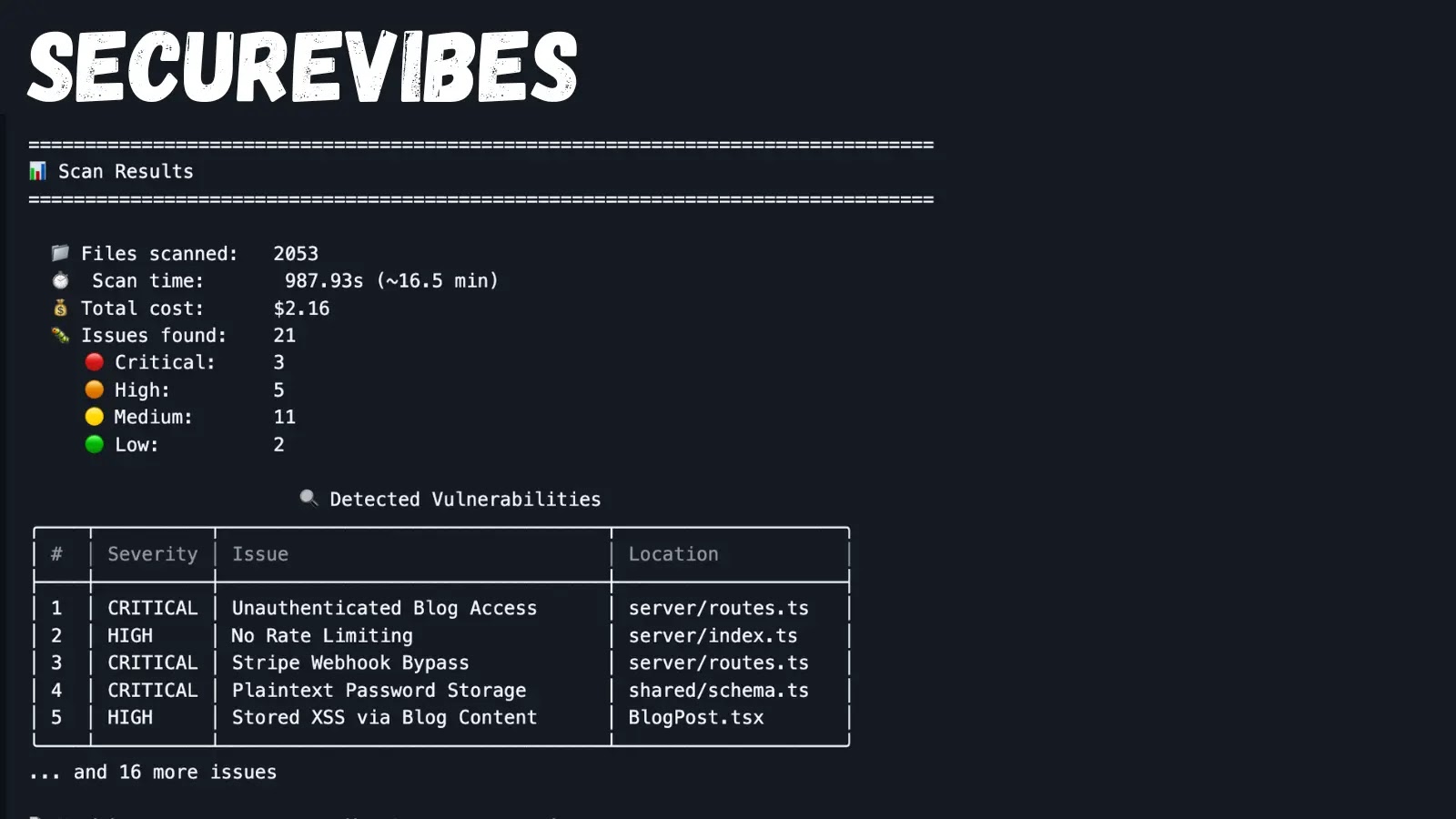
SecureVibes – AI-backed Tool Uses Claude AI Agents to Scan for Vulnerabilities Across 11 Languages
The AI Revolution Meets Security: Introducing SecureVibes for Multilingual Code Audits
Rapid application development, often dubbed “vibecoding,” has surged with the advent of AI, empowering developers to build at unprecedented speeds. While innovation flourishes, the acceleration can inadvertently introduce new security blind spots. This is where SecureVibes steps in, an open-source tool designed to fortify this fast-paced development. Leveraging Anthropic’s Claude AI, SecureVibes employs a sophisticated multi-agent system to automatically identify vulnerabilities across diverse codebases.
Developed by Anshuman Bhartiya and released in October 2025, this Python-based scanner marks a significant leap in AI-assisted security auditing. Its ability to process code in 11 different languages makes it an invaluable asset for modern, globally distributed development teams.
Understanding SecureVibes: How Claude AI Agents Enhance Security Scanning
SecureVibes differentiates itself through its innovative use of a multi-agent system powered by Anthropic’s Claude AI. Unlike traditional static analysis tools that rely on predefined rules or heuristic patterns, SecureVibes agents can contextualize code, understand developer intent, and identify more complex, logical vulnerabilities that often bypass conventional scanners. This approach mimics human security analysis more closely, learning and adapting to new threats.
The utility of AI agents in security scanning is their capacity for complex reasoning. Each agent within SecureVibes can be specialized for different tasks, such as analyzing data flow, identifying common weak patterns, or even simulating exploit attempts. This distributed intelligence allows for a more thorough and nuanced examination of code, flagging issues that might appear benign to rule-based systems but pose significant risks.
Key Features and Multilingual Capabilities
One of SecureVibes’ most compelling features is its extensive language support. By enabling vulnerability scanning across 11 programming languages, the tool addresses a critical need in polyglot development environments. This broad compatibility ensures that security isn’t limited to a single language ecosystem, making it relevant for a vast array of projects and organizations. This multilingual capability is crucial for identifying potential weaknesses that arise from interactions between components written in different languages or for auditing global software solutions.
Additional features likely include:
- Automated vulnerability detection.
- High accuracy due to AI-driven contextual analysis.
- Integration capabilities with CI/CD pipelines for continuous security.
- Detailed reporting of identified vulnerabilities with potential remediation suggestions.
- Open-source nature, fostering community contributions and transparency.
The Impact on “Vibecoding” and Rapid Development
“Vibecoding” emphasizes speed and iterative development, often leading to concerns about security being an afterthought. SecureVibes directly tackles this challenge by embedding security checks into the rapid prototyping phase. Developers can integrate the tool early in their workflow, allowing them to detect and fix vulnerabilities proactively rather than reactively.
This proactive approach not only saves time and resources in the long run but also cultivates a security-first mindset among development teams. By automating a significant portion of the security assessment, developers can focus more on innovation, knowing that an intelligent AI agent is continuously scrutinizing their code for potential weaknesses. The objective is to make security a seamless, invisible part of fast-paced development, ensuring robust applications without sacrificing agility.
Securing the Future with AI: A Proactive Approach
The introduction of SecureVibes signifies a pivotal moment in cybersecurity, moving toward more intelligent and adaptable security solutions. As AI continues to evolve, tools like SecureVibes will become indispensable for maintaining the integrity and security of software systems. This proactive approach to vulnerability management, driven by advanced AI agents like Claude, will be key in outmaneuvering sophisticated threats and ensuring the resilience of our digital infrastructure.
The shift from reactive patching to proactive, AI-driven security analysis is not merely an improvement but a fundamental change in how we conceive and implement software security. Open-source initiatives like SecureVibes empower the community to collectively enhance security measures, making robust protection accessible to a wider audience.





